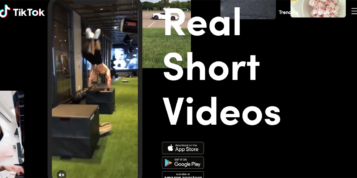Ever since major search engine developers stated last year that they do take social media signals into consideration when evaluating webpages for ranking within their search results, marketers all over the world have been scrambling to understand exactly what this entails and discover the best ways to tailor their content accordingly. The term ‘social search’ was coined to encapsulate the new phenomenon of social media influencing search results. This became the hottest buzzword this side of sliced bread. But what does it really mean?
Ever since Google expanded beyond search to offer other products to users, it has been collecting information on the internet habits of millions of people. By gathering information on social connections through products like Gmail, the company has developed a comprehensive understanding of the type of influence each user wields, as well as their interests, in order to serve them related content and give higher rakings to information they are interested in.
With the advent of Google+, the search giant has tied social media into its portfolio of services in a subtle and continually evolving manner. Part of the reason that social search signals are so important to search engines is that they are actually able to look at the person on the other side of the keyboard and can now connect the real human to their various profiles. This means that the information has more tangible value in that it is being processed and vetted by actual people rather than programmes that can be gamed.
Adding social signals into the complex criteria that web crawling algorithms take into account grants another layer of legitimacy to the ultimate results. Rather than just posting content for the sake of SEO or scattering link baits all over, updates in Google’s technologies are now encouraging online marketers to work harder to attract real people, adding another level of authenticity to search results.
With the re-launch of Digg, social search has found another powerful ally. The potential success of the site might further contribute to content scores that can influence search engine rankings. A Digg score is granted to a webpage according to the number of positive votes for its content in addition to the amount of approbation from Facebook and Twitter. Additionally, those sites earning the highest Digg ranking will be featured more prominently on the homepage of Digg itself, and so those brands with quality online content will have an additional chance to gain traffic.
Further signs of the continually strengthening relationship between search and social are the user interface updates that leading search engines have recently deployed. Bing has introduced a social sidebar, has started including Foursquare tips in its results and has also introduced the ability to tag Facebook friends as part the search process. Google has started to test a share button that allows those using the search engine to directly post a link to their Google+ stream and choose between sharing publicly or just within the user’s Circles.
As the relationship between SEO and social media strengthens, even to the point of blurring, it becomes important for marketers to develop strategies that create a symbiotic relationship between the two. Optimising content on social networks for better SEO benefit and optimising SEO content for greater impact in the social sphere will keep a brand ahead of the game, especially considering the current trend of further integration between the two. For example, another Google offering, YouTube, feeds into search results in several ways. The tags listed below each video, comments posted, number of likes versus dislikes, words in the title, number of views and length of viewing, and the video description all have sway on how the video ranks in searches both within YouTube itself and on the broader Google platform.
Thus it is important to know how social activities are affecting the visibility of websites in the rankings of search engines. Social media professionals should undertake various tests to monitor their efforts in order to better understand how one relates to the other. They can measure the effects of using different keywords, employing various branded terms like the company name and specific products, and linking to different pages rather than just the homepage. Additionally, for links to websites within social media content, the use of tracking codes in the URL will help to create information that can be viewed in Google Analytics, such as click-throughs, bounce rates, and conversion paths. In doing so, they can monitor any rankings fluctuations in search engine results for the keywords, pages linked to, and the social profiles themselves.
In the grand scheme of things, these developments are ultimately positive. It means that digital professionals are now tasked with creating higher quality content that will be directly rewarded by being praised and further disseminated by real users. Basically, it is all about creating a great user experience and increasing engagement with excellent online content.






